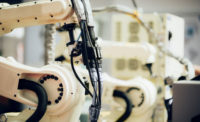Editorial
Plastics are ruining the environment
How can we help stop this?

Single use plastics are the hot topic of the moment – and with good reason. They’re non-biodegradable meaning once created they will never disappear from the environment. When consumers open the bin to drop their plastic waste in that may be the last they see of it but it’s far from the end of the story.
Subsequently going on to land fill, where poisonous gases can leak in to the atmosphere or being pumped into seas and oceans across the globe. The latter often results in wildlife getting caught in or swallowing the debris, which can lead to injuries, deformation and, ultimately, death. I’m sure everyone is familiar with the images of innocent animals caught in the plastic fastenings used to keep a four-pack of lager together.
The issue has grown so significantly that everyone from David Attenborough to the Queen of England has made their thoughts known on the matter. Costa Rica recently became the first nation to ban single-use plastics, aiming to fulfil the commitment by 2021.
There’s little argument to suggest that anything other than moving away from the harmful material will be the best way forward. However, the malleable nature of the product, high volume production potential and wide availability still make it an attractive prospect to manufactures around the world.
So, here are our top tips to help you get on top of your own plastic disposal habits.
The Last Straw!
Many food and drink establishments have ditched their usual straws and have now stocked up with eco-friendly alternatives. Some of the bigger chains have even made a commitment to replacing of all of the harmful straws with ones that are better for the environment.
However, some venues are still persisting with the plastic variation. You could help change this by making a friendly suggestion to the bar staff that healthier versions are now widely available. On a more personal level, you could declare it ‘the last straw’ and just avoid using them. Whilst this does not solve the problem entirely it will reduce the overall usage.
Produce Bags
The need to keep produce fresh and clean is important but not at the expense of the environment. And, let’s be honest, if humans continue to pollute at the rate they are doing then growing the produce in the first place could become difficult.
The UK supermarket chain Morrisons has recently moved to provide old-fashioned paper bags for customers buying loose produce and will cease to offer a plastic option to its customers. It estimates that this will result in a reduction of 150 million fewer plastic bags. And the good news doesn’t stop there, other supermarkets have all committed to reducing their ‘avoidable waste’ too.
Be More Savvy
It’s a sign of just how deep-seated the scourge of plastics are in society that many of the items you use today are likely to fall into the single use category without you having even realized it. Disposable razor blades, female sanitary items, nappies, water battles, even some shopping bags and much more besides are items we use on a daily basis that have a greener alternative. If everyone were to substitute these items then we would be able to make a significant dint in reducing our plastic wastage.
While there is still a concerted effort being made to put an end to the destruction that has already been caused and, hopefully, reverse it, there is still a long way to go. By taking small steps in your everyday life you can play your own role in improving society.
Looking for a reprint of this article?
From high-res PDFs to custom plaques, order your copy today!




